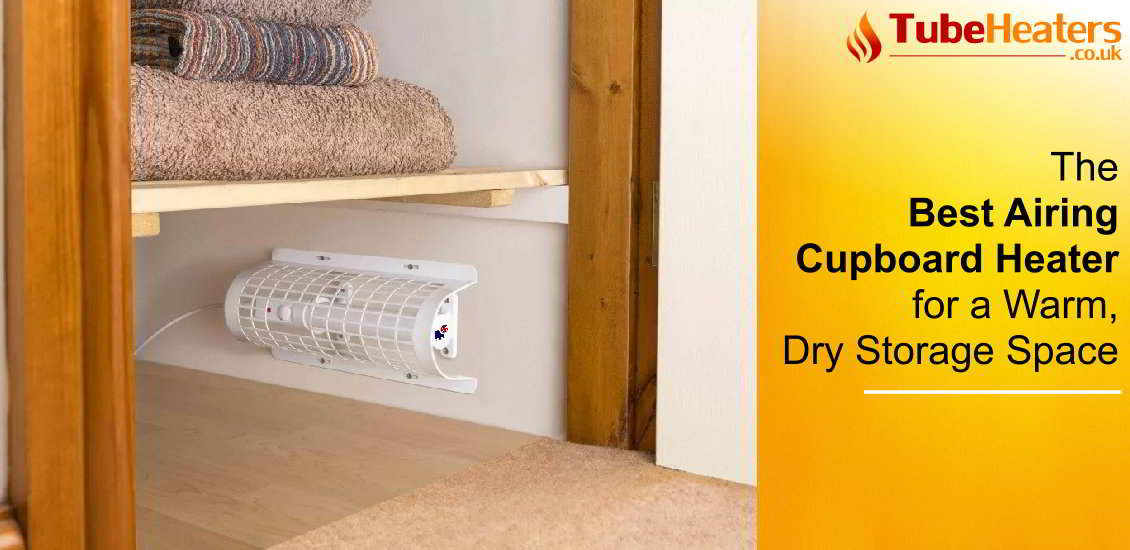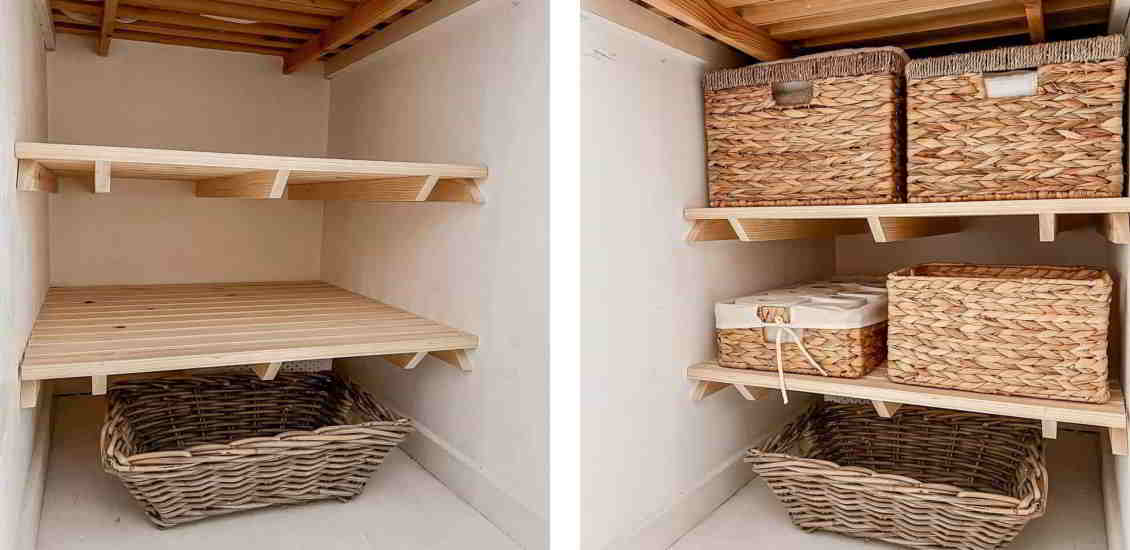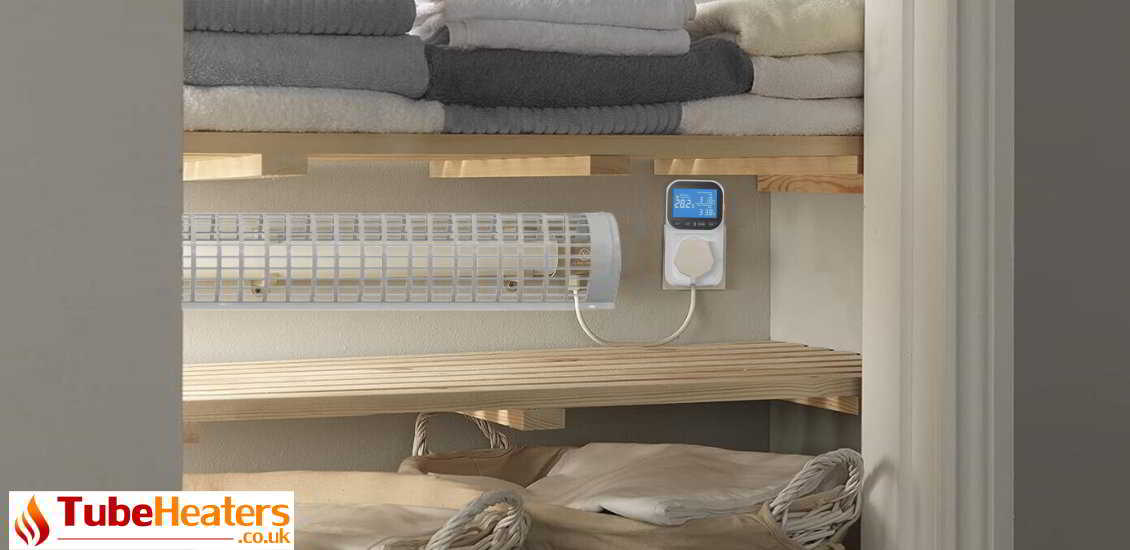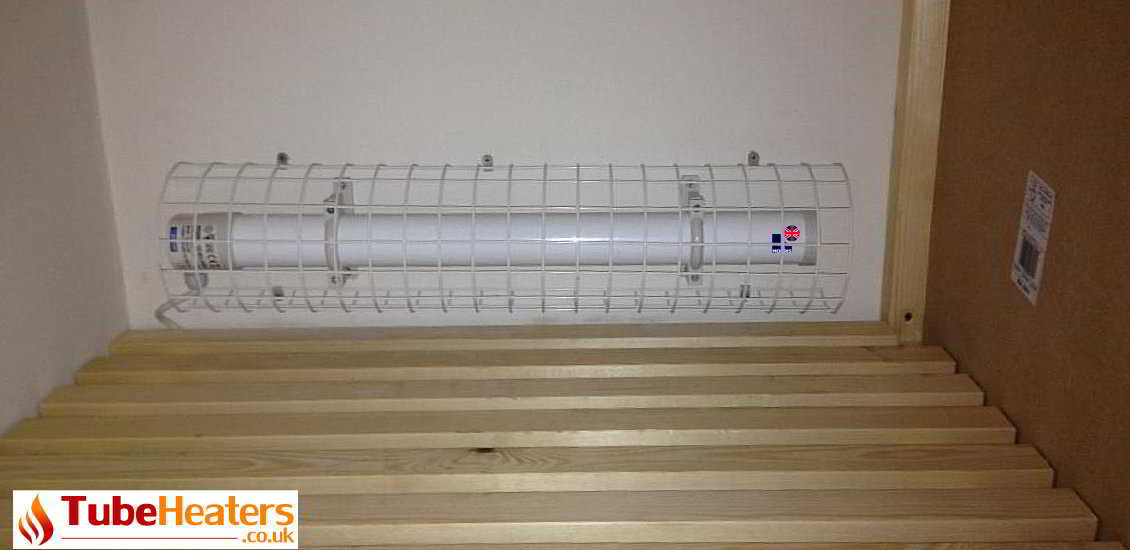
If you’ve ever opened your airing cupboard to find damp towels or musty-smelling clothes, you know how frustrating it can be. An airing cupboard heater (also called an airing cupboard radiator) is the perfect solution to keep this space warm, dry, and free from moisture.
At TubeHeaters.co.uk, we offer energy-efficient, safe, and easy-to-install heaters designed specifically for airing cupboards. Whether you need a basic model or an airing cupboard heater with timer, we’ve got you covered.
What Is an Airing Cupboard?
An airing cupboard is a storage space, usually located near a boiler or hot water tank, where households traditionally keep towels, bedding, and clothes to air them naturally. These cupboards were especially common in British homes built before the 1980s, designed to take advantage of residual heat from water tanks to dry laundry efficiently. Even in modern homes without traditional tanks, many people still use these spaces for storing linens - they're often the warmest, driest place in the house to prevent musty smells and dampness in fabrics.

What Is the Purpose of an Airing Cupboard?
The main purpose is to store and air laundry, keeping it fresh, dry, and ready to use. The gentle warmth helps evaporate moisture from damp towels or clothes, preventing that unpleasant "damp laundry" smell. Many people also use their airing cupboard to store out-of-season clothing or delicate fabrics like woollens that benefit from being kept in a dry, temperature-stable environment.
Why Do Airing Cupboards Have Slatted Shelves?
Slatted shelves allow air to circulate freely around stored items, helping moisture evaporate more efficiently than solid shelves would. The gaps between slats prevent "hot spots" where fabrics might overheat, and they're particularly useful for drying slightly damp items like swimwear or just-washed delicates. Many modern airing cupboards still use this traditional design because it simply works better for airing purposes.
What to Store in an Airing Cupboard?
● Towels (the warmth keeps them fluffy and prevents mildew)
● Bedding (duvets, sheets and pillowcases stay fresh)
● Clothes (especially wool jumpers and baby clothes that need extra care)
● Delicate fabrics (like silk items that shouldn't go in a tumble dryer)
Avoid storing plastic, medicines or anything heat-sensitive as temperatures can fluctuate.
Does an Airing Cupboard Need Ventilation?
Yes! While some warmth is good, proper airflow prevents excessive humidity buildup that could lead to condensation. If your cupboard feels stuffy or you notice a musty smell, consider adding small vents to the door or leaving it slightly ajar occasionally. Some modern heaters even have built-in ventilation features to maintain ideal air circulation.
Is It Safe to Have a Boiler in the Airing Cupboard?
Generally, yes—but boilers produce heat, which can make the space too hot. If your boiler runs often, you may not need an extra heater.
Why Is My Airing Cupboard So Hot?
If your cupboard gets excessively warm, it's likely because your boiler or hot water tank is working hard (especially in winter). Modern well-insulated tanks can make cupboards hotter than older models did. This is why many homeowners now opt for separate, thermostatically-controlled heaters - they maintain an ideal temperature without the extreme heat spikes from boiler operation.
Why Airing Cupboard Temperatures Vary
Modern heating systems affect airing cupboards differently:
With Traditional Tanks (Too Hot)
● Newer, well-insulated hot water tanks retain heat better
● This can make cupboards overheat compared to older, less efficient tanks
Problem: Excessive heat may damage stored fabrics
With Combi Boilers (Too Cold)
● Instantaneous combi systems don't store hot water
● Cupboards lose their natural heat source entirely
Problem: Dampness and musty smells develop
Our Solution:
✔ Overheating cupboards? Use a thermostat-controlled heater to regulate temperature
✔ Cold cupboards? Add gentle warmth to restore proper airing conditions
Can You Put a Heater in a Cupboard?
Yes! A low-wattage tube heater is the safest and most efficient way to warm an airing cupboard. Standard heaters can be a fire risk, but tubular heaters are designed for enclosed spaces.

Do You Still Need an Airing Cupboard Heater?
While traditional airing cupboards were designed to be the warmest, driest place in the house, modern home improvements have changed how they function:
✔ Better insulation means less residual heat escapes from tanks
✔ Combi boilers don't provide the constant warmth old tanks did
✔ Energy-efficient homes often leave cupboards too cool for proper airing
Result? Many modern "airing cupboards" are just... cupboards - no warmer than anywhere else!
That's where our specialised tube heaters help:
→ Recreate the gentle warmth of traditional airing cupboards
→ Prevent damp in homes with too-good insulation
→ Saves energy compared to overheating your entire boiler
"My 'airing cupboard' was just a cold closet until I added a tube heater. Now my towels are properly dry for the first time in years!" - Mark R., Ipswich ⭐⭐⭐⭐⭐
What Is the Best Way to Heat an Airing Cupboard?
A thin, wall-mounted tube heater is ideal because:
● It’s safe (no exposed heating elements)
● It’s energy-efficient - The smaller models can run for 1p per hour (low running costs)
● It prevents dampness without overheating fabrics
Are Tubular Heaters Safe?
Absolutely! Our heaters are designed for worry-free use:
● Built-in overheat protection (automatically shuts off at 80°C)
● IP55/IP44 rated (completely safe around dust and moisture)
● Secure mounting brackets prevent accidental movement
● Safe for 24/7 operation - perfect for maintaining constant warmth
Extra safety tip: Add tube heater guards (available separately) for complete peace of mind, especially in homes with children or pets.

Our Top Airing Cupboard Heaters
1. ECO Heat Range (Traditional Tube Heaters)
✅ Best for: Simple, energy-efficient warmth
| Features | 1ft (60W) | 2ft (120W) | 3ft (180W) | 4ft (240W) |
|---|---|---|---|---|
| Running Cost/Hour | £0.02 | £0.03 | £0.05 | £0.06 |
| Length | 30cm | 60cm | 90cm | 120cm |
| Thermostat | No | No | No | No |
| Safety Cut-Off | 80°C | 80°C | 80°C | 80°C |
| IP Rating | IP55 | IP55 | IP55 | IP55 |
Key Features:
● Radiant heat (gentle & effective)
● IP55 rated (moisture-resistant)
● Only 0.02p–0.06p per hour to run
● 10–20 year lifespan
"Installed a 2ft heater in my airing cupboard—no more damp towels! Uses barely any electricity." – Sarah M. London ⭐⭐⭐⭐⭐
Would you prefer an airing cupboard heater with timer? Get our Tube Heater Starter Kits - includes your chosen heater plus a protective guard and either a thermostat or timer for complete climate control!
2. Thermostat Heat Range (Slimline with Adjustable Control)
✅ Best for: Precise temperature control
| Features | 1.6ft (55W) | 2.3ft (90W) | 3.3ft (135W) | 4.9ft (190W) |
|---|---|---|---|---|
| Running Cost/Hour | £0.01 | £0.02 | £0.04 | £0.05 |
| Length | 51cm | 70.5cm | 100.5cm | 150.5cm |
| Thermostat | Yes | Yes | Yes | Yes |
| Safety Cut-Off | 80°C | 80°C | 80°C | 80°C |
| IP Rating | IP44 | IP44 | IP44 | IP44 |
Key Features:
● Adjustable thermostat (set your ideal warmth)
● Power indicator light (easy to monitor)
● IP44 rated (safe for damp spaces)
● Energy-saving (as low as 0.055kWh)
"Love the thermostat control. It keeps the cupboard warm without wasting energy." – James T. Bournemouth ⭐⭐⭐⭐⭐

More Heating Solutions You Might Like
Cost-Effective Warming with Plug-In Electric Wall Heaters
The Cheapest Electric Heater to Run
Small Bathroom Radiator: How to Keep Your Bathroom Warm
Greenhouse heater comparison. The Secret Weapon of Hobby Gardeners with small budgets.
What's the Cheapest Way for a Shed Heating?
Final Thoughts
An airing cupboard heater is a small investment that makes a big difference—keeping your linens fresh, dry, and ready to use.
Browse Morris Airing Cupboard Heaters Today!
Have questions? Write below your comments—we’re happy to help!


Noah Williams
Noah Williams is TubeHeaters.co.uk’s dedicated heating specialist, with 10+ years of experience designing energy-efficient heating solutions for homes and businesses. His in-deep knowledge of low-wattage systems—from frost prevention to space optimization—delivers practical, cost-saving advice you can trust. Noah’s expert guidance ensures you get the right tube heater to stay warm, save energy, and protect your property—exactly as our mission promises.

6 Comment(s)
How long is the plug cable on a 2 foot tubular heater? To measure the size of cupboard, it's width x depth but what about the height?
Regards,
Laurie.
Hi
Can you use a timer with the 1 foot tube heater (any recommended) and would this be big enough to provide warmth in an airing cupboard 65cmx45cm?
Thanks
I have an airing cupboard sized 100 x 60 x 180cm what size Tube heater would you recommend to dry clothes ?
Thank you.
Hi Laurie,
Thank you for your questions. The standard plug cable on our 2-foot tubular heater is 1 metre long, providing good flexibility for positioning. For your cupboard dimensions, the height is indeed the vertical measurement from the floor to the shelf or ceiling where you plan to install the heater. This is a crucial measurement to ensure your new airing cupboard heater will fit correctly and operate safely.
Kind regards,
Noah
Hi Steve,
Thank you for your question. For an airing cupboard of 65cm x 45cm, we would generally recommend considering a 2-foot model to ensure sufficient warmth, as the 1-foot version may be underpowered depending on the ceiling height and insulation. The Morris 24-hour mechanical timer plug (https://tubeheaters.co.uk/Morris-24-hour-mechanical-timer-plug-for-heater) is an excellent choice and will work perfectly with any of our tube heaters. This combination provides a safe and effective airing cupboard radiator solution.
Kind regards,
Noah
Hi Neil,
Thank you for your question. It's important to note that a tube heater is not designed to dry wet clothes, but rather to provide gentle, background warmth to prevent damp and musty smells, making it an ideal airing cupboard heater. For the dimensions you've provided, a 3ft model is typically a good starting point. Please note this is general advice, as the ideal size can be influenced by other factors like the room's insulation and humidity levels.
We recommend monitoring the space to see if this provides the desired effect.
Best regards,
Noah
Leave a Comment